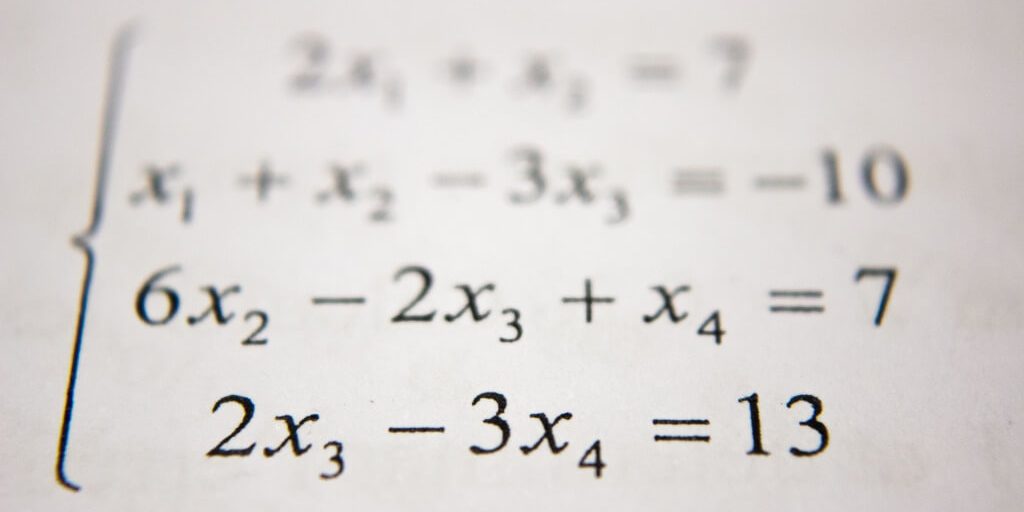by: Chris Boyle
PE Teacher and 7th Grade Pre-Algebra Teacher
March 2019
When I tell people that I am a Middle School Math Teacher, I am always entertained by the wide range of reactions I receive. A surprising amount of people respond somewhere on the spectrum between “amazement” and “bewilderment.”. I cannot tell you how often people regal me of anecdotes from their own unpleasant experiences in Middle School, many of which involve their MS Math classes. Most share that this is the same time their aversion to Math began because it was the first time they were challenged in the classroom. It is heartbreaking to hear parents, colleagues and friends tell me about the distaste they still have for math all these years later. One of my main aims as an educator is to create a learning environment that gives my students the greatest chance to leave my classroom with a positive disposition about math and their abilities in it.
Creating a positive disposition about learning in Middle School can be a challenge because many students at this age already think their success in math class is predetermined. Many of my students arrive on the first day of school already resigned to the fact that they are either “good” or “bad” at math. At St. Vincent de Paul, I am constantly engaging in a respectful yet firm dialogue with my students to defend the idea that no middle school student is truly “bad” at anything. In my experience, very few twelve to fourteen-year-olds objectively know what it looks like to be good or bad at something. Well, maybe Fortnite or Snapchat, but not any of the important things! At the end of the day, one of my focuses as a math teacher (academically speaking) is to make sure my kids are being challenged in a way that maximizes learning while giving them opportunities to find success in the material through hard work, patience and persistence.
It is not surprising that for many, there is such a negative association between the Middle School years and the math classroom. Middle school is often the first time in students’ academic careers where they are being asked to take an active role in their education. Students are expected to become more patient, positive and persistent in their learning. As students get older, the hope is that they do not mindlessly ingest content, but rather think critically about how and why concepts work together. Often times, this critical thinking requires additional time spent wading into and thinking about the material. Like most things, in order to be successful in math, you must work hard and practice.
One of the biggest misconceptions my students have is that smart people do not need to work hard in order to learn. They incorrectly assume that things just naturally come to intelligent people without effort. This is evident in my classroom where I routinely hear things like: “I am just not a ‘math’ person so why should I even try” or “I don’t like math because I am bad at it.” How can anyone expect to have a positive experience if they are predisposed to such negative outlooks? The truth is that the expectation of success isn’t there; many students say they are “bad” at math and it slowly becomes a self-fulfilling prophecy. They think they are bad math; therefore they become bad at math.
But here is the secret that no one tells our students! Math does not need to be scary. Math is not going to crawl out of the closet when parents go to bed and the lights go out. Nor is it an elite club only for the privileged and gifted “math” people of the world. For most, it takes time to understand how math works and equally as much time to cultivate the skills necessary to excel in it. Over time, students who have an open and positive disposition towards learning math are the ones who find the most success in it. While it can be tough to get students to buy into this notion, it is of the utmost importance to try and cultivate. There is quite a bit of research published that supports the correlation between growth mindsets and increased performance in the math classroom. I also believe so firmly in the idea that a positive disposition leads to success in the classroom based of my own experiences as a teacher and formerly as a student.
Growing up, I attended St. Catherine of Siena Catholic School in Seattle, WA, for all intents and purposes a Northwest replica of St. Vincent de Paul. I grew up loving numbers and was always drawn to math. While I was a good student amongst a class of mostly high achievers, I hit my first academic roadblock in 8th grade when our class was divided into “Pre-Algebra” and “Algebra” sections. We had a University of Washington professor come in specifically to teach Algebra, yet I was placed in the lower “Pre-Algebra” class.
Despite learning new material and excelling by all observable metrics, I began to dislike math, a subject I used to enjoy so much. I was comparing myself to others instead of relishing in my own personal successes; I began thinking I was “bad” at math because I was in a slower paced class. I told myself that because I was not in Algebra, I was no longer a capable math student. As a freshman in high school, I was once again was placed in a lower math class than many of my peers. Fortunately, I was supported by amazing parents and teachers who told me that my math class placement wasn’t nearly as important as the effort I put forth in those classes. I bought into this idea and embraced the challenges that math presented me as I got older. I learned to be more active in my learning by taking risks and asking questions when material didn’t click. I learned to trust that sometimes I wouldn’t get material immediately but if I worked hard and was patient that it would make sense in time.
I worked my tail off and was taking Calculus by the time I was a Senior. It wasn’t as though I had some sort of exceptional mathematical prowess that was overlooked during my school career. Far from it: those slower paced classes were best suited for my development as a math learner at the time. I was being appropriately challenged in an environment that allowed me to find success. “Pre-Algebra” and basic “Algebra 1-2” helped grow my confidence and gave me the chance to develop a more positive outlook on learning math. It also illuminated the idea that my attitude and work ethic directly correlated to my success as a math student. These dispositions allowed me to approach learning math with an open mind and gave me confidence to search out creative solutions when I faced adversity. For example, I would voluntarily go see my HS Calculus teacher, Mr. O’Leary, before Track practice twice a week for extra help. Things didn’t change when I got to college either: I used to run at 7 AM and finish at my math professors’ office hours loaded with questions while still wearing my running clothes. All that hard work paid off as I eventually earned my undergraduate degree in Mathematics and later a graduate degree focusing on secondary math education.
I could have easily said I was “bad” at math in middle school, been discouraged and shut myself off to a world of possibilities. Thankfully I kept an open mind and it has taken me to some really cool places, most recently St. Vincent’s here in Denver! I know that I would not have had the success I did in Math if I approached the subject with a negative attitude and a preconceived notion that I could not do well in it. I don’t imagine that the majority of my students will end up studying theoretical mathematics like I did, but I do imagine they will find other passions that excite and engage them. Applying the same skills that will make them successful in the math classroom will translate to other avenues in their lives. Regardless of what they choose to pursue in their futures, working hard and having a positive disposition about it will certainly help!






